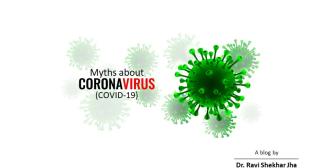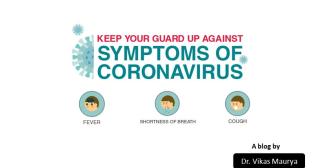
A Guide for Understanding Lung Cancer; One of the Leading Causes of Cancer Deaths in the World
Globally, the leading cause of death due to cancer is currently attributed to lung cancer. Cancer occurs when lung cells divide uncontrollably, causing tumours to grow. Tumours in the lungs can cause breathing difficulty, which spreads to other organs in the human body after some time.
According to the World Health Organization, cancer accounted for nearly 10 million deaths in 2020, with lung cancer accounting for 2.21 million cases. In India, lung cancer accounted for although anyone can develop lung cancer, certain factors like cigarette smoking, exposure to second-hand smoke, inhaled chemicals, or other toxins can substantially increase the risk. Records of 22,645 lung cancer patients were reported in India between 2012 and 2016. According to the Indian Council of Medical Research (ICMR), the number of lung cancer cases in India is expected to rise more than sevenfold by 2025.
People with lung cancer do not face symptoms at an early stage.
The symptoms are seen in the later period, and they include:
- Lingering Cough
- Coughing up blood, even a tiny amount
- Shortness of breath
- Chest pain
- Hoarseness
- Losing weight without trying
- Fatigue
- Headache
Causes:
While not all causes of cancer can be controlled, there are other factors that can be controlled through diet and lifestyle factors. Ahead are some of the major causes of cancer:
- One of the leading causes of cancer is smoking tobacco. According to estimates from trusted sources, about 80% of lung cancer deaths stem from smoking.
- Exposure to chemicals like radon, diesel exhaust, asbestos, and arsenic in drinking water, especially in Southeast Asia, can also lead to cancer.
- Environmental factors, such as air pollution can cause lung cancer.
- It can be inherited or acquired genetic issues.
- Passive smoking
- Recurrent lung infections
COPD- Cigarette smoking and lung cancer:
Chronic obstructive pulmonary disease (COPD) is a disease that affects the human lungs and hampers airflow in the body. Some symptoms of COPD include breathing difficulties, coughing, mucus (sputum) production, and wheezing. The two most common contributing factors to COPD are emphysema (a lung disease that causes shortness of breath) and chronic bronchitis. These two conditions frequently co-exist and have varying severity in COPD patients. Further, long-term exposure to irritating gases or particulate matter, mostly from cigarette smoke, can also lead to COPD.
Smoking not only causes cancer but also prevents your body from fighting against the disease:
- Toxins in cigarette smoke can weaken the immune system, making it more difficult to kill cancer cells. When this occurs, cancer cells continue to grow unchallenged.
- Toxins in tobacco smoke can harm or change the DNA of cells. DNA is the cell's "instruction manual"; it governs average cell growth and function. When a cell's DNA is damaged, the cells continue to grow unchecked and form tumours.
India is the second largest tobacco producer worldwide, with 761,318 Tons of yearly production. Smoking cigarettes and bidis increase the chance of lung cancer, which can be considered the principal risk factor affecting both men and women.
Smoking, nowadays, is considered a "stress buster" or a "fashion statement." This trend is seen in females more than in men. In the recent times it has been seen that women smokers are on the rise. At the same time, 19.6 per cent of women in the age group of 15-19 smoke more than five cigarettes/bidis, and only 15.7 per cent of men of the same age smoke the buds. Smoking cigarettes causes serious harm to one's body, and, in fact, in pregnant women, it can also harm the unborn child.
Over the last 4-5 years, the young generation has become more addicted to smoking. Stress is the main reason behind this indulgence, and this stress can be related to both their professional and personal life. According to WHO, the total global burden of lung cancer in males in 2018 was 14.5% (13.6 lakhs), the highest among cancers, and the estimated global burden of lung cancer in females in the same year was 8.4% (7.25 lakhs), the third highest among cancers.
Cancer in non-smokers and smokers:
- Adenocarcinoma is one of the most common types of lung cancer diagnosed in non-smokers. It frequently begins in the lungs' outer regions, in the mucus-producing cells that line the small airways known as bronchioles. Adenocarcinoma differs from other types of lung cancer in its shape.
- Another key difference between cancer affecting smokers and non-smokers is that it tends to grow more slowly later.
- Non-smokers generally do not have a single cause behind their lung cancer diagnosis. Instead, a combination of factors often contributes to the disease, like air pollution, exposure to chemicals, passive smoking, etc.
A family history of lung cancer can also increase lung cancer risk for a non-smoker. Brothers, sisters, and children of people with lung cancer may have a slightly higher risk.
Biomass fuels are also a cause of lung cancer:
Biomass releases carbon dioxide into the atmosphere, and carbon is not the only thing being released from biomass energy. Burning wood and other biomass fuels release many other greenhouse gases, most notably nitrogen oxides, carbon monoxide, and methane. Long-term exposure to such chemicals can cause chronic lung disease, respiratory infections, and asthma, ultimately leading to cancer.
Air pollution is a rising concern for lung cancer:
Air Pollution causes a complex mixture of particulate matter and gases in the air. Particles from wildfires, nitrate particles from motor vehicle exhaust, coal power plants, black carbon emitted from gas and diesel engines, and other sources that burn fossil fuels, sulphur dioxide emitted by large coal-fired power plants, ozone, and carbon monoxide from fuel combustion are all examples of air pollutants.
Small particles can become trapped in the lungs during breathing. A build-up of these particles can harm the cells of the lungs, causing inflammation. Persistent inflammation over a long period can cause changes in how these cells replicate. When these cells are damaged, another type of cell can begin growing, which might lead to cancer tumours. According to WHO reports, outdoor air pollution is responsible for 29% of lung cancer deaths and diseases. Residential radon exposure caused over 58 000 lung cancer deaths in 2016. The number of lung cancer cases is expected to reach 3,299,640 by 2040.
Prevention:
Simple lifestyle steps and habits can go a long way in helping to reduce the risk associated with lung cancer. Some of them include the following:
- Stay away from tobacco
- Encourage the use of mask outdoors
- Avoid or limit exposure to cancer-causing agents
- Eat a healthy diet
- Keep away from passive smoking
- Awareness of symptoms and routine check-ups
Authored by: Dr. Sushmita Roy Chowdhury, Director of Pulmonology, Fortis Hospital, Anandapur, Kolkata
Categories
Clear allMeet the doctor

- Pulmonology | Pulmonology
-
25 Years
-
1500



















